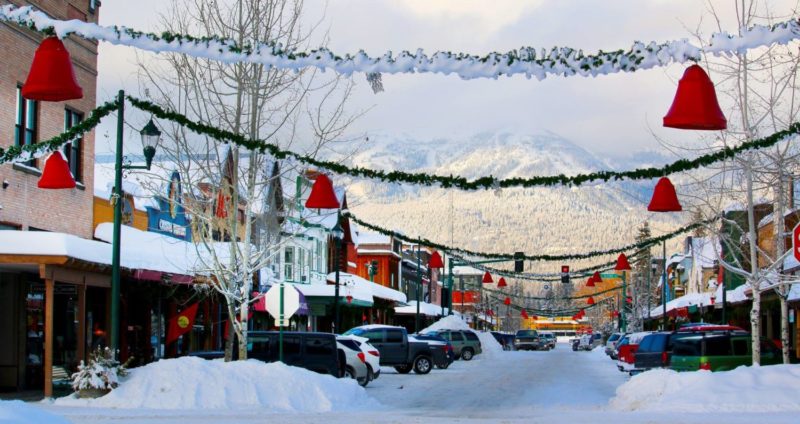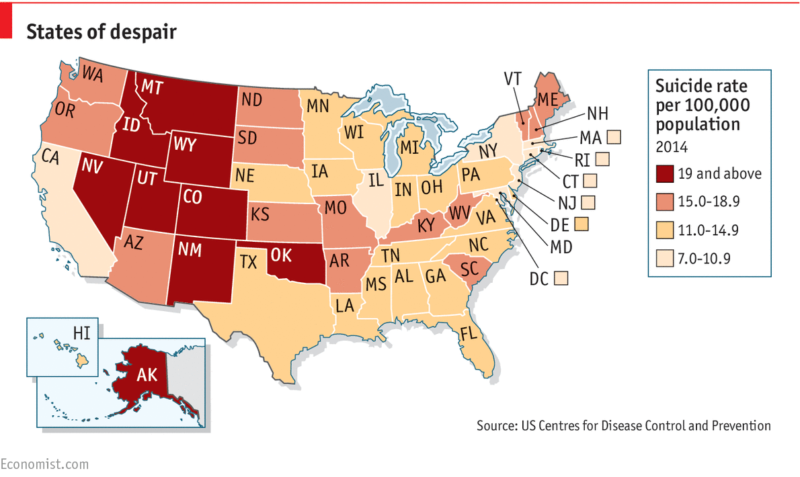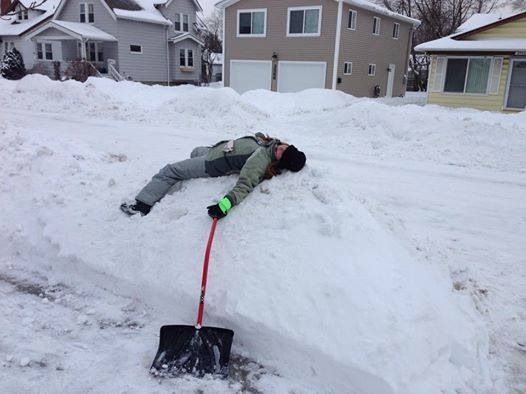
While we love to think it is all sunshine and powder days in the mountains, there are a few issues that seem to spring up in many mountain towns. Unfortunately, suicide, depression, and substance abuse are nothing new to these Neverland destinations. Anyone who has seen Dexter go off the rails in Aspen Extreme knows what I am talking about. You move to your dream town and expect to ski every day and live it up. But in reality, it turns into working two jobs to pay rent, drinking often, and eventually wondering, “What am I doing here?”.
In a popular article by National Geographic, they address several factors that contribute to high suicide rates in these “paradise” towns. Some of the most iconic winter destinations, such as Wyoming, Colorado, Montana, and Utah, consistently make the top ten for the highest suicide rates.
“People come here, they try to set up a life, and it’s probably not what they expected. They’re isolated from their families, their support systems, and there’s a huge financial crisis that creates stress on people, with seasonal work, the housing shortage, the price of rentals, and just the cost of living in general.” – Diedre Ashley, executive director of Jackson Hole Community Counseling Center
The large gap between rich and poor is evident in tourist-driven ski towns and is the main cause of hard times for residents. The transient nature of the community leads to less meaningful relationships and can leave people feeling lonely. Even altitude can change your brain chemistry enough to affect your mental health. Despite all of these factors against those who live in these towns, the dark side of mountain living is one that is often swept under the rug.

Luckily, the issues mountain towns face are not predestined for everyone living there. While we cannot easily change the housing market, the seasonal jobs, or the thin air, we can look at our own lifestyle and change the things within our power. As winter draws near, let’s look at ways to combat the mountain blues and take this season by storm.
1. What’s going into your body?
If you answer with beer and pizza, you will start feeling low on energy pretty soon in the season. Fueling your body is one of the most important tools to success. How do you expect to work hard and play hard when running on fumes? You won’t.
In the article “Understanding Nutrition, Depression, and Mental Illness,” psychologists have linked the importance of proper nutrition to depression. Nutritional neuroscience is a discipline focused on explaining the theory that nutritional factors play a role in our cognition, behavior, and emotions. Taking a look at your nutritional health is a good place to start if you start to feel depression settling in.
“Nutrition can play a key role in the onset as well as severity and duration of depression. Many of the easily noticeable food patterns that precede depression are the same as those that occur during depression. These may include poor appetite, skipping meals, and a dominant desire for sweet foods.”
When your energy levels wane, anxiety and depression can kick in naturally. When you start feeling down, drugs and alcohol are easy to lean on. It’s a deep spiral that could potentially be avoided if you were more in tune with your health. During a busy, hectic season, it can be easy to forget the most basic function of living–eating properly.

Winter can be especially taxing on the body. With cold temperatures, our body is constantly burning to keep us warm, and our immune systems can start to weaken. Vitamin D is harder to come by, fresh produce prices spike, and it can be tough to keep your body balanced. But if you put as much effort into eating healthy as you do into skiing, it will become easier, and it definitely pays off.
Winter Nutrition Hacks
- Try green supplements. Yeah, they taste gross, but you will feel amazing. Plus, one scoop of powder is easier than prepping veggies, so take advantage of it.
- Cook at home. Chances are, you can’t afford to eat out at all these tourist-based restaurants, so don’t even try. The hour you spend at a bar eating nachos could be an hour you make a legit meal at home and for half the price.
- Eat more and more often. See your body as a machine and fuel that beast.
2. What comes first?
The answer should be skiing, of course! When all is said and done, you came here to ride. If you find yourself too hungover to even make it to the chairlift on a powder day, something is wrong. Don’t sacrifice your sole purpose of living here for black-out nights, drug binges, and meaningless relationships. Staying focused is the key to dismissing those distractions and living your life to the fullest.
In an interview with The Inertia’s Joe Carberry, Tanner Hall sheds some light on dealing with the distractions that come with success in the skiing world. After everything he has been through in the last five years, he is more focused on his training and health than ever in his life. We always love a good pro tip, and Hall’s might be one of the best.
“At the end of day, the only advice I would give is stick to the course and always put skiing first and foremost. If you make it in the industry, you just have to realize what got you there. The girls, drugs and drinking will all be there, but you’ve got to make a choice for yourself and make skiing the number one priority. Skiing has given me everything, a great life. Partying almost took everything away.”
Skiing comes first– It’s how the “Ski Boss” can still crush it…
Tips for Keeping the Focus
- Set goals for the season. New tricks, new lines, new projects. Always aim toward the raddest version of yourself.
- Notice who you surround yourself with. Do they push you on the mountain or interfere with your success? Do they inspire adventure or distract you from your goals?
- Train your mind and body. Whether you train by hitting the gym, going to yoga, or climbing at your favorite crag, training keeps you focused on the positive. Keeping yourself busy with healthy activities leaves less room for the bad stuff. Plus, you will soon find yourself surrounded by some of the most talented, brave, and high-energy individuals who like the same things you do.
3. Is mountain life everything you wanted it to be?
Truth is, some folks move here and find out it’s not for them. If you were hoping for something fun and easy before heading to a “real” job, you might not find it. The sooner you face your discomfort and have a backup plan, the less anxiety you will encounter.
There’s no reason to force something that is absolutely miserable if you don’t enjoy it. Between shoveling, cold weather, and short dark days, there’s a reason you have to be a certain kind of crazy to love living in a ski town. So truthfully, if you aren’t feeling it, you probably aren’t the crazy one.
After asking yourself these questions, maybe all the factors against you don’t matter, or maybe you’ll try the city next year. Either way, the best way to overcome these dark issues in ski towns is to bring them to light and spread awareness. You might feel lonely, but you aren’t alone. Behind every pair of goggles is someone living their own version of trials and hardships in the mountains. While mountain living can be rough, it brings us together in amazing ways.
